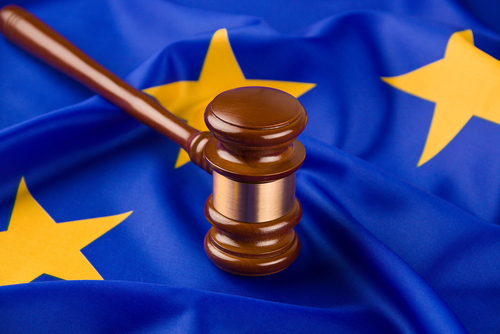Google has, after careful consideration, officially rejected the antitrust charges filed against it by the European Commission.
Its decision should come as no surprise, as Google said in August that the EU’s antitrust action against it was “wrong as a matter of fact, law, and economics”.
Long Case
Google’s rejection of the charge of anti-competitive behaviour regarding the accusations of promoting its shopping service and hindering its rivals in online search advertising could pave the way for a showdown between the two.
Google could face a fine of as much as $7 billion (£5.6bn) over the alleged charges or 10 percent of its global revenue.
The EC investigation dates back to November 2010 after complaints by rivals including Microsoft, TripAdvisor, Nokia and Expedia.
 Essentially, these companies claimed that Google had abused its dominant position in the online search market to shut out rivals in areas such as price comparison, navigation and advertising. It is also investigating whether Google has been “scraping” content from rivals’ sites, and unfairly restricting advertisers and software developers who do business with the search giant.
Essentially, these companies claimed that Google had abused its dominant position in the online search market to shut out rivals in areas such as price comparison, navigation and advertising. It is also investigating whether Google has been “scraping” content from rivals’ sites, and unfairly restricting advertisers and software developers who do business with the search giant.
Google of course dominates the search engine market in Europe, and although it is not illegal to hold a monopoly, it is forbidden to abuse it.
In the course of negotiations Google missed several deadlines, tabled a total of three different proposals and even the company’s chairman Eric Schmidt got involved. In July 2012, it emerged that Google agreed to add Android to the list of platforms on which it would redesign the search algorithms.
And then in early 2014, it was reported that Google had finally reached a settlement agreement with the competition commissioner. But that prompted a howl of protests from rivals, forcing the EC to “revise” its decision.
Then in April this year the European Commission sent Google its “Statement of Objections”, alleging that Google has abused its dominant position in the search engine market.
It has also formally opened a separate antitrust investigation into Google’s conduct regarding the Android operating system.
Google Rejection
But Google is not taking this lying down and its general counsel Kent Walker said on a blog that the accusations had no factual, legal or economic basis, and that the EU objections took no account of companies such as Amazon and the competitive nature of online shopping.
“It claimed that when we offered improved shopping ads to our users and advertisers, we were ‘favouring’ our own services – and that this was bad for a handful of price comparison aggregators who claimed to have lost clicks from Google,” blogged Walker. “But it failed to take into account the competitive significance of companies like Amazon and the broader dynamics of online shopping.”
“Ultimately, we can’t agree with a case that lacks evidence and would limit our ability to serve our users, just to satisfy the interests of a small number of websites,” wrote Walker. “But we remain committed to working with the Commission in hopes of resolving the issues raised, and we look forward to continuing our discussions.”
He also said that Google will shortly respond to the Statement of Objections about the Android operating system.
“We’re confident these cases will ultimately be decided based on the facts and that this analysis will show our product innovations have benefited consumers and merchants, and expanded competition,” concluded Walker. “The surest signs of dynamic competition in any market are low prices, abundant choices, and constant innovation — and that’s a great description of shopping on the internet today.”
The EU meanwhile has confirmed it has received Google’s response.
“In each case, we will carefully consider Google’s response before taking any decision on how to proceed and cannot at this stage prejudge the final outcome of the investigation,” Commission spokesman Ricardo Cardoso was quoted by Reuters as saying.
How much do you know about the European Commission? Take our quiz!





